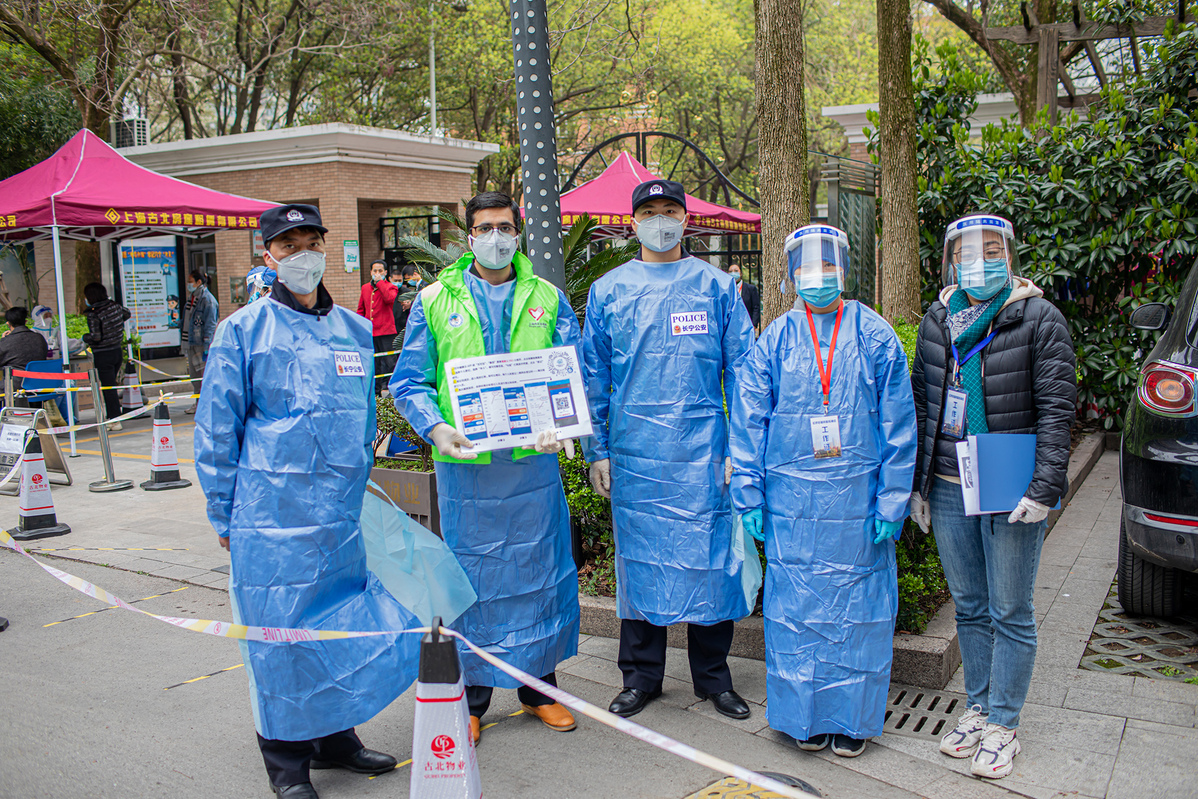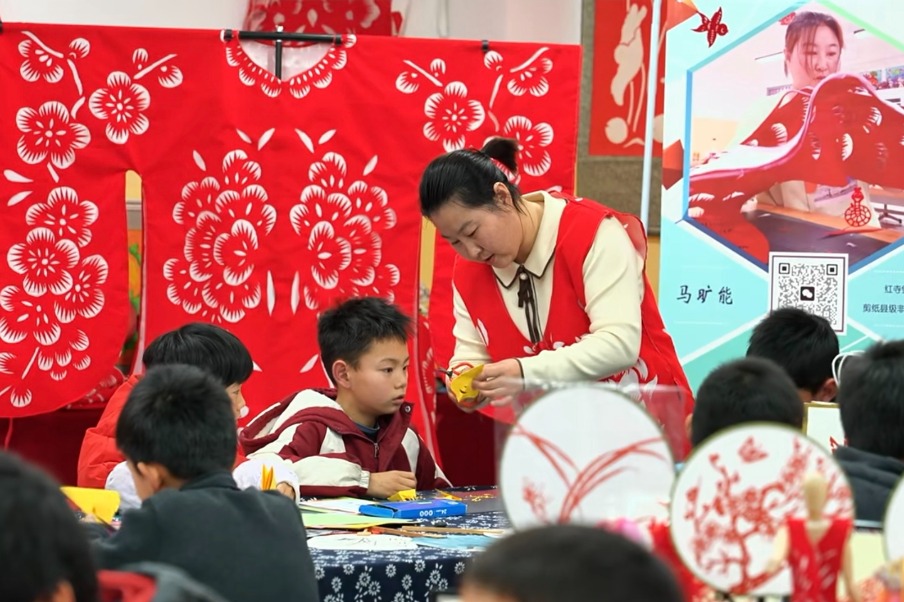Expats lend a hand to grid-screening in Shanghai


More than 46,000 Shanghai residents, including expats, have volunteered in the city's ongoing grid-screening program, which completed more than 30 million nucleic acid tests between last Wednesday and Sunday.
In neighborhoods with high numbers of foreign residents, some expats have been volunteering to help explain the grid-screening procedure to their peers and maintain order at testing venues.
Among these expats is Habib Ur Rehman, a Pakistani national who has been volunteering in Shanghai's Changning district where he resides. About one fourth of residents in Changning are expats.
"Due to language barriers and culture gaps, foreigners living here may face different problems when queuing for tests. I can help explain the plan to them show them how to do things like obtaining the required QR codes from the app," said Habib, who can speak both Chinese and English.
"I hope this can help them save time, and the testing process can go smoothly. It's our duty to safeguard Shanghai together."
Some police officers who are able to speak English and Japanese have also joined the volunteer contingent to help facilitate the process of testing for the expat residents. Among these officers is Fei Chenyue.
"I majored in Japanese when I was in college and I want to use my language skills to help more residents get tested efficiently," she said.
Since March 3, nearly 1,950 epidemic control work tasks that require volunteers have been published via official channels, said Zheng Yinghao, deputy director of the Shanghai Municipal Civilization Office.
These tasks include measuring of temperatures, checking of health QR codes when entering public venues, helping organize nucleic acid testing in neighborhoods, and transporting supplies. The volunteers have each worked an average of more than 11 hours in their respective positions, Zhang said.
- Former senior official of Ningxia sentenced to death
- Development program narrows urban-rural gap in Guangdong
- Wuxi Winter Bazaar creates cross-cultural gathering
- Expressway service area featuring a natural hot spring to open soon in Guangdong
- Former Ningxia political advisor sentenced to death for bribery
- Former senior official of Jiangxi expelled from CPC





































